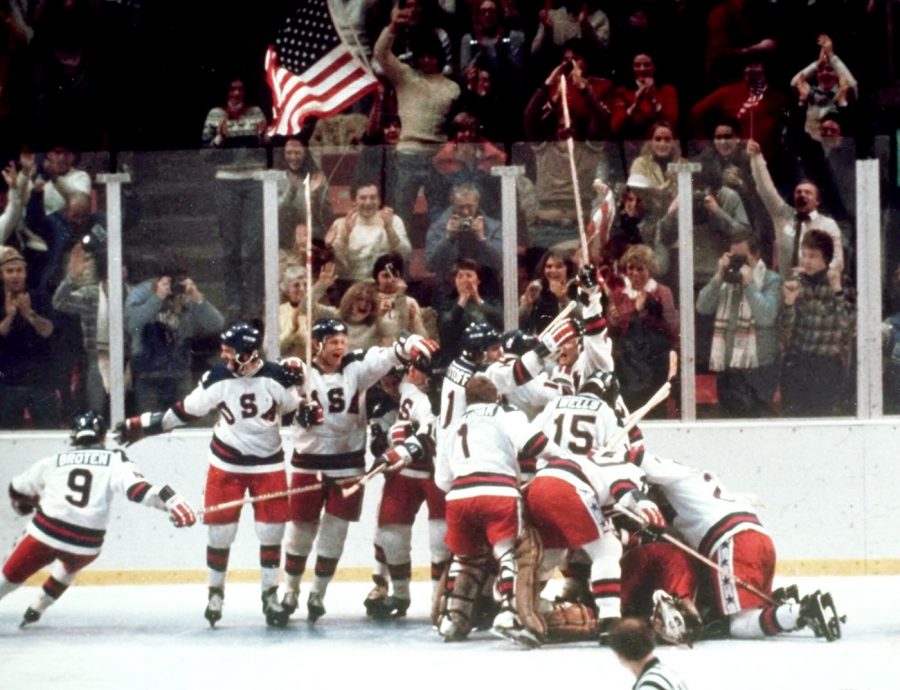A Glimpse Into The Past: Miracle On Ice
October 8, 2020
1980 came at the latter half of the Cold War, and tensions between the Soviet and Union remained high. President Jimmy Carter had chosen for the U.S. to boycott the 1980 Summer Olympics in protest of the Soviet invasion of Afghanistan in December 1979, as well as 64 other countries. As such, many eyes were on the U.S. when they returned to the Olympics for the 1980 Winter Olympics, and there was a weighty importance placed on its performance against the Soviet Union.
Up until the Games, the Soviet Union was the strong favorite to take gold in ice hockey, as they had done so in five out of the six previous Winter Games. The Soviet team was lined with extremely experienced veteran players who had played numerous times beforehand in international games. In contrast, the U.S. Olympic team consisted of young players, the youngest team formed in U.S. national team history, most of which had only college hockey experience. It was formed by Herb Brooks, former Olympic hockey player for the U.S., who chose to select some young, local players he himself had coached at the University of Minnesota.
Entering the Olympic ice hockey games at Lake Placid, New York, the U.S. team was the definite underdog. At a previous exhibition game at the NYC Madison Square Garden, the Soviets had defeated them 10-3. In response, the American team rallied to prove themselves. In the group stage, they tied Sweden, upset Czechoslovakia, defeated Norway and Romania, and conquered West Germany, landing the U.S. team into their fifth round robin against the mighty Soviets.
This game was not the gold medal game, but its political and social implications gave it a tremendous amount of weight. All eyes were on the showdown between the two world powers. When the game began, the Russians scored first. Down 0-1, U.S. players Pavelich, Harrington, and Schneider, nicknamed the “Iron Range,” got the U.S. on the board with a slap shot that entered the Soviet goal at a top corner. Three minutes later, the Soviets scored again, only to be tied once more by Mark Johnson with just seconds left in the period. After intermission, the Soviets outshot the Americans through two periods, and were tied again by Johnson, 3-3. In the final 10 minutes of the game, probably the tensest in U.S. hockey history, the Iron Range pulled off a spectacular play that ended with team captain Mike Eruzione scoring “the shot heard round the world.” And with that, the U.S. made it to the final game, where they won 4-2 against Finland, taking home the gold medal.
In the final seconds of the U.S. vs. Soviet game, Al Michaels, television sportscaster for ABC, proclaimed: “Do you believe in miracles? YES,” contributing to the creation of the nickname “Miracle on Ice.” The Miracle on Ice was named the top sports moment of the 20th century by Time Magazine in 1999, and it was labeled “the best international ice hockey story of the past 100 years” by the International Ice Hockey Federation in 2008.
To many Americans, the Miracle on Ice was more than just an amazing win at the Olympics; it was an ideological victory in the Cold War. The Miracle on Ice uplifted the country after many hardships, and became one of the most memorable moments of U.S. sports and the Olympics.
Photo courtesy of NYDAILYNEWS.COM

